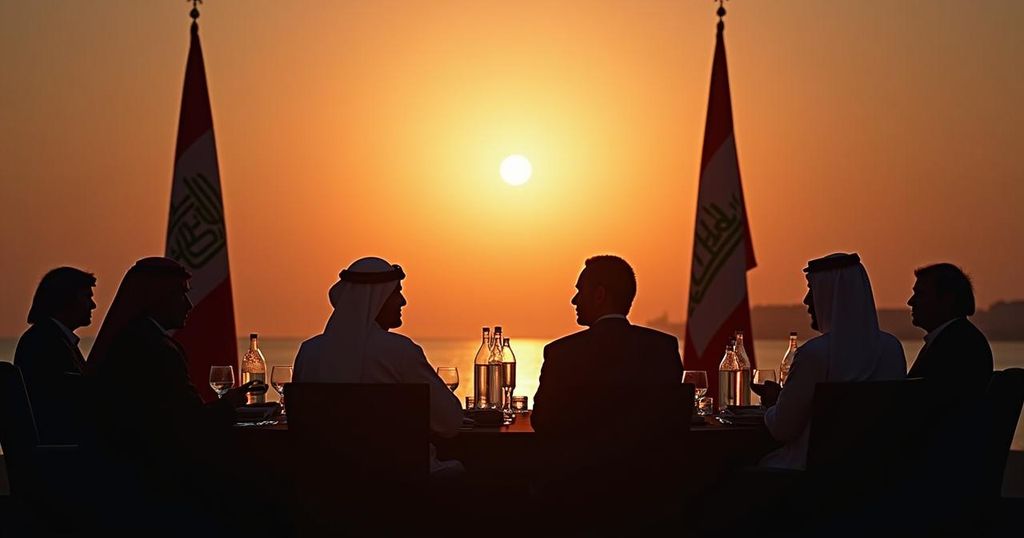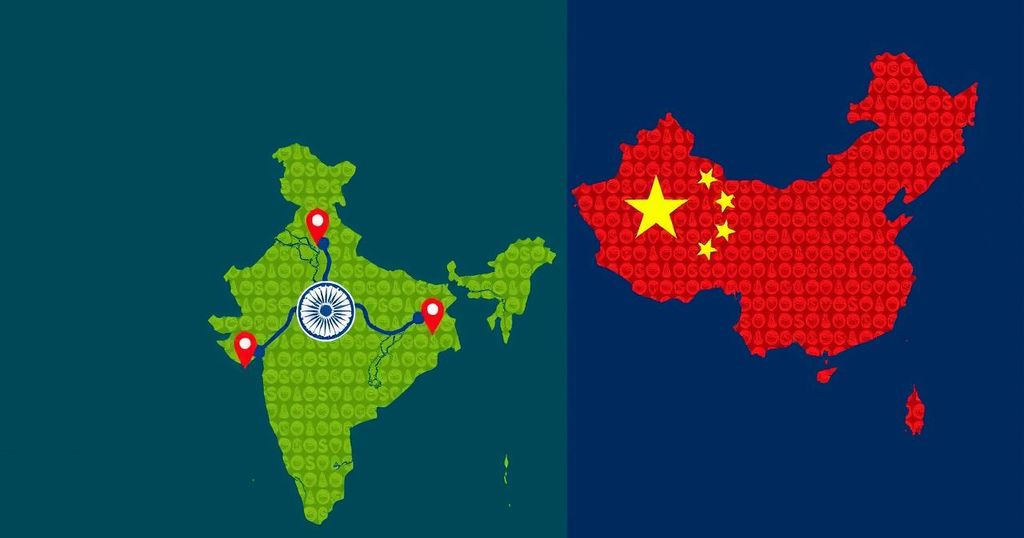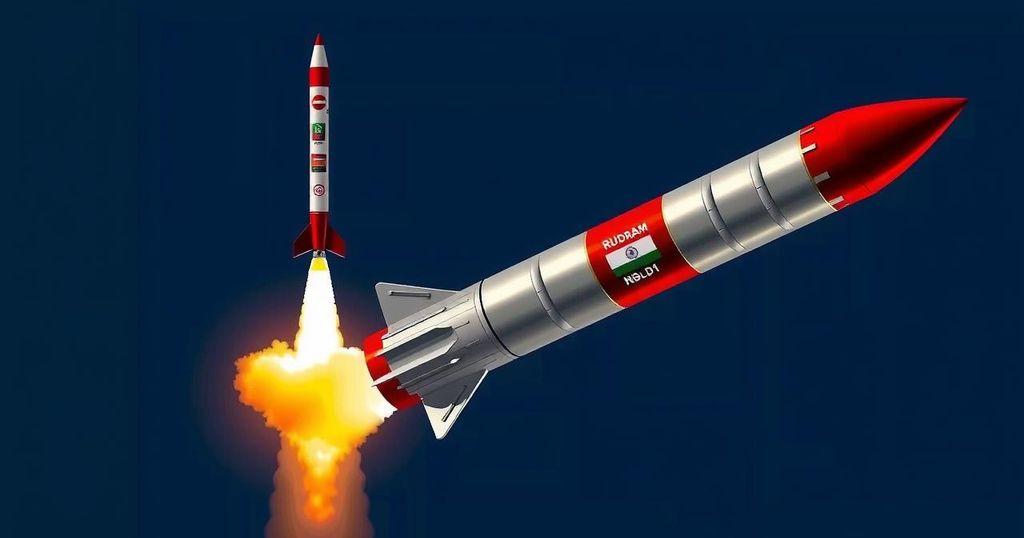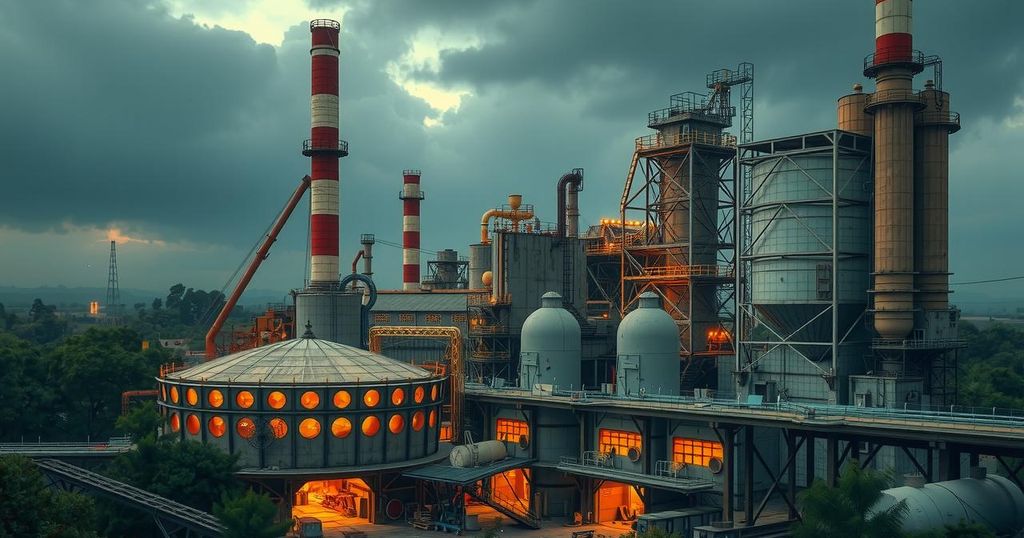Iran’s Foreign Minister Visits Beirut Amid Escalated Regional Tensions and Gulf States’ Neutrality Commitment
Iran’s Foreign Minister Abbas Araghchi visited Beirut amidst escalating tensions following Iran’s missile strike on Israel. His visit included discussions with Lebanese officials, while Iranian diplomacy showed signs of rapprochement with Gulf states during a summit in Doha, highlighting efforts towards regional stability. Simultaneously, a significant humanitarian crisis unfolds with rising casualties due to ongoing conflicts in Lebanon and Israel.
Iran’s Foreign Minister Abbas Araghchi arrived in Beirut on Friday amid heightened tensions following an Iranian missile barrage directed at Israel. This visit coincided with renewed Israeli airstrikes in close proximity to Beirut-Rafic Hariri International Airport and following an assault targeting Hashem Safieddine, a figure believed to be the successor of Hezbollah leader Hassan Nasrallah, who was killed by an Israeli operation in southern Beirut on September 27. During his visit, Araghchi is expected to confer with Lebanon’s caretaker Prime Minister Najib Mikati and Parliament Speaker Nabih Berri, both of whom maintain close relations with Hezbollah. Concurrently, a summit held in Doha brought together Iranian and Gulf leaders, suggesting the possibility of diminishing hostilities between regional adversaries Riyadh and Tehran. Reportedly, Iranian President Masoud Pezeshkian expressed readiness to foster relations with Riyadh in discussions with Saudi Foreign Minister Faisal bin Farhan. He emphasized the need for unity, asserting, “We consider Islamic countries, including Saudi Arabia, as our brothers, and we emphasise the importance of setting aside differences to enhance cooperation.” Conversely, Bin Farhan shared Saudi intentions to mend ties with Tehran, stating, “We aim to permanently close the chapter on our differences and focus on resolving issues, developing relations as two friendly and brotherly countries.” He further extended reassurance to Pezeshkian regarding Saudi trust in Iran’s capability to promote regional stability. The Gulf Cooperation Council members, including the UAE, Bahrain, Saudi Arabia, Oman, Qatar, and Kuwait, are reportedly reassuring Iran of their neutrality amid ongoing tensions related to the Iran-Israel conflict. Saudi Arabia remains vigilant about threats to its oil infrastructure, especially following a significant attack in 2019 that disrupted global oil supplies. Iran, meanwhile, has conducted its most extensive strike on Israel as a retaliatory measure for the assassination of prominent leaders including Nasrallah and Hamas leader Ismail Haniyeh. Israeli officials are advocating for a robust counteroffensive targeting Iranian assets in both the oil and nuclear sectors. In Tehran, Supreme Leader Ali Khamenei addressed the public, defending the recent missile attacks on Israel as a justified response to its aggression against Lebanon and Gaza. He articulated, “Each and every country, each and every people have the ultimate right to defend themselves against the ultimate tyranny,” and condemned the efforts of perceived enemies to foment division among Muslim nations. The ongoing conflicts have resulted in substantial fatalities with a reported toll of 1,974 civilians, including children, amid Israeli airstrikes in Beirut’s suburbs and southern areas of Lebanon. Additionally, significant casualties have been reported among Israeli and Hezbollah forces, coupled with humanitarian crises as many displaced individuals seek shelter from ongoing violence, often in overcrowded conditions.
The political landscape in the Middle East remains complex, characterized by longstanding rivalries and recent escalations in violence. Iranian foreign minister Abbas Araghchi’s visit to Beirut comes during a period of intense military activity, including Iranian missile strikes against Israel that were framed as retaliation for previous assassinations of key Palestinian and Hezbollah figures. This backdrop of confrontation has implications for both regional stability and the security of oil supplies, critical to global markets. Moreover, the diplomatic overtures between Iran and Saudi Arabia signify ongoing efforts to address historical animosities, amidst threats and military engagements between Iran and Israel that could further destabilize regional dynamics.
In summary, the recent visit of Iranian Foreign Minister Abbas Araghchi to Beirut underscores the intricate web of geopolitics in the Middle East, interwoven with military action and diplomatic dialogues. As Iran engages in offensive operations against Israel, regional leaders, particularly from the Gulf, are navigating their responses amidst calls for neutrality and reconciliation. The evolving relationship between Iran and Saudi Arabia reveals an emerging dynamic that could influence future stability in the region, although immediate tensions associated with the Iran-Israel conflict continue to pose significant risks to both civilian lives and broader geopolitical relations.
Original Source: www.middleeasteye.net








Post Comment